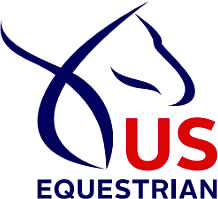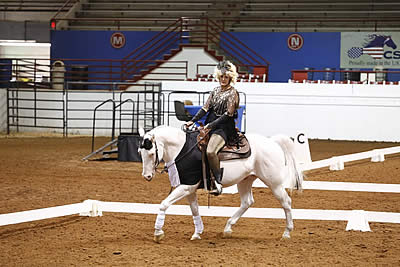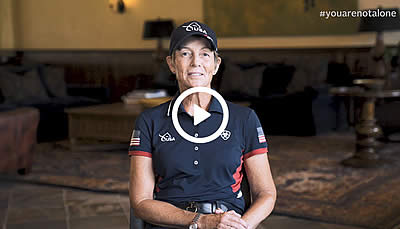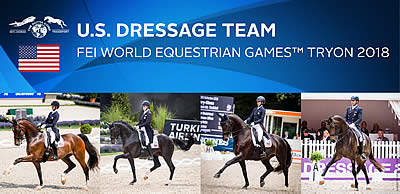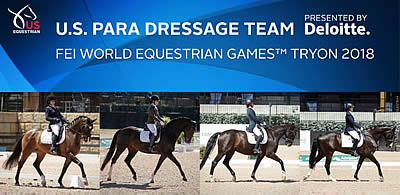US Equestrian has prepared responses to frequently asked questions regarding interim measures issued by the U.S. Center for SafeSport. The following information is an additional resource to help further educate US Equestrian members and the public around these important matters.
Safe Sport
What is the U.S. Center for SafeSport, what is their jurisdiction and how is the Center empowered?
The U.S. Center for SafeSport launched in March 2017 as an independent entity charged with (i) providing education and outreach about athlete abuse; and (ii) investigating and resolving reports of sexual misconduct. Their jurisdiction is exclusive as it relates to allegations of sexual misconduct and it retains discretionary jurisdiction over non-sexual misconduct allegations, i.e. bullying, harassment, physical and emotional misconduct.
The Center was authorized by Congress on February 14, 2018, through S. 534 – Protecting Young Victims from Sexual Abuse and Safe Sport Authorization Act of 2017.
The bill amended the Ted Stevens Olympic and Amateur Sports Act of 1978 by designating the U.S. Center for SafeSport to serve as the independent national safe sport organization, with the responsibility for developing policies and procedures to prevent the emotional, physical, and sexual abuse of amateur athletes.
What are the reporting requirements?
All USEF members and participants must report to the U.S. Center for SafeSport conduct of which they become aware that could constitute (a) sexual misconduct, (b) misconduct that is reasonably related to the underlying allegation of sexual misconduct, and (c) retaliation related to an allegation of sexual misconduct. This report must be made within 24 hours of learning about the alleged misconduct.
Importantly, the obligation to report requires reporting any conduct that comes to a member’s or participant’s attention, which if true, would violate the U.S. Center for SafeSport Code or USEF Safe Sport Policy.
Individuals should not investigate or attempt to evaluate the credibility or validity of allegations involving sexual misconduct, as a condition of reporting to the U.S. Center for SafeSport.
What happens if I do not report conduct that I am required to report?
The failure to report is a crime under federal law and it is punishable as a criminal offense. In addition, the failure to report is a violation that could result in a sanction against the individual.
Am I required to report about suspected abuse that occurred several years ago?
Yes. There is no statute of limitations applicable to reports of incidents of sexual misconduct made to the U.S. Center for SafeSport.
What resources are available to learn more about Safe Sport?
The USEF website links to the Center with extensive resources, including:
- Reporting forms and process
- 24 Hour Helpline
- Definitions
- Safe Sport Training
- Safe Sport Code
- USEF Safe Sport Policy
- Safe Sport Sanctions List
Suspensions, Bans, and Enforcement
Who decides whether to issue a temporary suspension for sexual misconduct?
The U.S. Center for SafeSport has exclusive jurisdiction over reports of sexual misconduct and determines whether interim measures, including suspensions should be imposed.
Does the U.S. Center for SafeSport issue a temporary suspension in connection with every report of allegations of sexual misconduct?
No. The U.S. Center for SafeSport issues a temporary suspension when they deem the facts and circumstances warrant it.
What is the criteria for a temporary suspension?
The U.S. Center for SafeSport may impose interim measures, i.e. a temporary suspension, when they deem it is appropriate to ensure the safety and well-being of the Reporting Party, Athletes, other Non-Athletes or the Responding Party. Interim measures may be appropriate where an allegation against the Responding Party is sufficiently serious that the Responding Party’s continued participation could be detrimental to the sport or its reputation.
For more information refer to the U.S. Center for Safe Sport Practices and Procedures, please visit: https://www.safesport.org/files/index/tag/policies-procedures.
Is there a process for a person to seek relief from a temporary suspension?
Yes. An individual may request that the U.S. Center for SafeSport stay the temporary suspension in certain circumstances, e.g. participation in a certain event. In addition to, or in lieu of, a request for a stay, the individual may request an interim measures hearing, which will be afforded within 72 hours of such request. The interim measures hearing is conducted before an independent arbitration body.
Can a suspended person request that USEF lift their suspension or permit them to participate in some activities?
No, any request for relief from a suspension must be directed to the U.S. Center for SafeSport, and decisions will be made in accordance with their Practices and Procedures.
How are individuals notified they are under a temporary suspension?
The U.S. Center for SafeSport notifies the Responding Party by e-mail.
What is the scope of an interim measures hearing on a temporary suspension?
An interim measures hearing is limited to determining whether reasonable cause exists to justify the temporary suspension. It is not a full hearing on the merits of the case.
Is there recourse against someone who intentionally makes a false accusation?
Someone who abuses the process, falsifies information or maliciously abuses the process is subject to sanctions.
Does the USEF know the reporting party?
No, the U.S. Center for SafeSport will not identify or use the name of a Third-Party Reporter nor will it publicly release a Reporting Party’s identifying information.
Why can’t everyone know everything about an investigation?
Sharing details about allegations made, or an investigation, can impede the ability to thoroughly investigate a matter without interference. In some cases, law enforcement may be involved and the fact that an investigation is underway could compromise the ability of law enforcement to secure the evidence necessary to pursue an indictment.
Once a determination is made that a violation occurred, what guidelines does the U.S. Center for SafeSport follow to determine appropriate sanctions?
According to the U.S. Center for SafeSport Practices and Procedures, the following guidelines are used:
Sanctioning Guidelines
Sanctions will be reasonable and proportionate to the Code violation and surrounding circumstances with the intended effect of protecting relevant participants. One or more of the following sanctions may be recommended or imposed singularly or in combination: (a) written warning; b) educational or behavioral programs; (c) loss of privileges; (d) probation; (e) suspension or other eligibility restrictions, up to and including permanent ineligibility. The Officer reserves the right to lessen or broaden any range of recommended sanctions in the case of mitigating circumstances or egregiously offensive behavior.
Factors relevant to determining appropriate sanctions include, without limitation:
- Seriousness of the Violation;
- The Responding Party’s prior history;
- Ages of individuals involved;
- Whether the Responding Party poses an ongoing threat to the safety of others;
- Voluntary disclosure of offense and/or cooperation by the Responding Party;
- Disposition of an investigation by state or federal law authorities;
- Real or perceived impact of incident on the Reporting Party, NGB(s) or USOC; and
- Other mitigating and aggravating circumstances.
For more information refer to the U.S. Center for Safe Sport Practices and Procedures, please visit: https://www.safesport.org/files/index/tag/policies-procedures.
What is USEF’s responsibility to enforce sanctions?
Federal Law requires USEF to enforce sanctions imposed by the U.S. Center for SafeSport and interim measures, including temporary suspensions. Communicating the information to members and the media is an important way to ensure protection of our members and participants in equestrian sport.
When did USEF’s Safe Sport program start?
USEF established a Safe Sport Policy, effective December 1, 2013, prior to the Center being created. The Policy covered the areas of prohibited conduct (sexual misconduct, emotional misconduct, physical misconduct, bullying, harassment, and hazing), training and education, criminal background checks, reporting and enforcement. Program requirements included Safe Sport Training and criminal background checks for USEF Staff, Licensed Officials, Board Members and Team Chefs and Coaches.
What is the responsibility of USEF Recognized Affiliates and their associated organizations and activities?
A suspended or banned person is prohibited from participating, in any capacity, in any activity or competition authorized by, organized by, or under the auspices of the United States Olympic Committee, the national governing bodies recognized by the United States Olympic Committee, including US Equestrian, and/or any US Equestrian Affiliated Organization. This prohibition affects a person regardless of whether or not they are a USEF member. Competition licensees and management are responsible for ensuring that no banned or suspended person is on the competition grounds.
From the US Equestrian Communications Department
